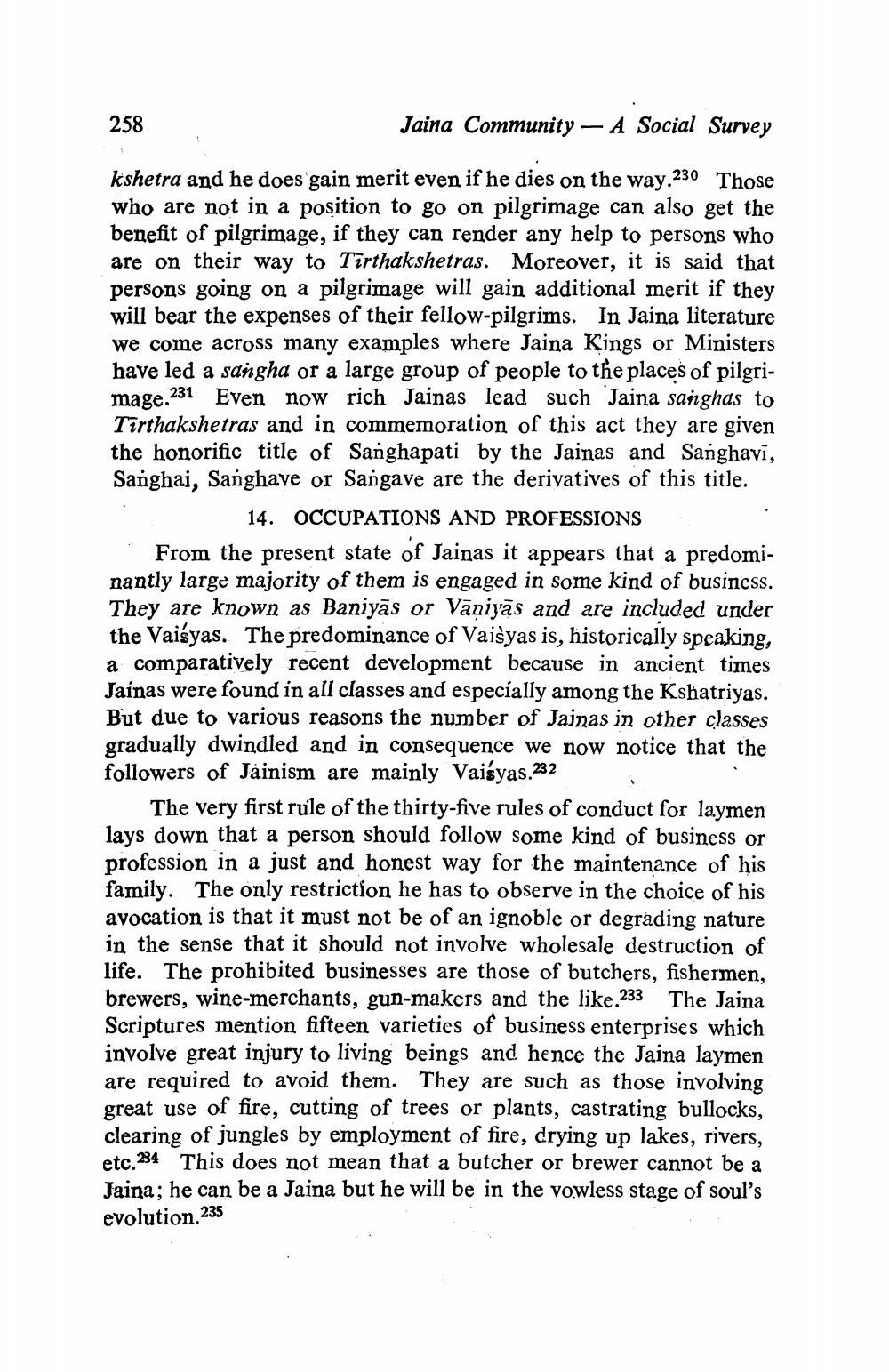________________
258
Jaina Community - A Social Survey
kshetra and he does gain merit even if he dies on the way.230 Those who are not in a position to go on pilgrimage can also get the benefit of pilgrimage, if they can render any help to persons who are on their way to Tirthakshetras. Moreover, it is said that persons going on a pilgrimage will gain additional merit if they will bear the expenses of their fellow-pilgrims. In Jaina literature we come across many examples where Jaina Kings or Ministers have led a sangha or a large group of people to the places of pilgrimage.231 Even now rich Jainas lead such Jaina sanghas to Tirthakshetras and in commemoration of this act they are given the honorific title of Sanghapati by the Jainas and Sanghavi, Sanghai, Sanghave or Sangave are the derivatives of this title.
14. OCCUPATIONS AND PROFESSIONS From the present state of Jainas it appears that a predominantly large majority of them is engaged in some kind of business. They are known as Baniyās or Vāniyās and are included under the Vaisyas. The predominance of Vaisyas is, historically speaking, a comparatively recent development because in ancient times Jainas were found in all classes and especially among the Kshatriyas. But due to various reasons the number of Jainas in other classes gradually dwindled and in consequence we now notice that the followers of Jainism are mainly Vaisyas.22 i
The very first rule of the thirty-five rules of conduct for laymen lays down that a person should follow some kind of business or profession in a just and honest way for the maintenance of his family. The only restriction he has to observe in the choice of his avocation is that it must not be of an ignoble or degrading nature in the sense that it should not involve wholesale destruction of life. The prohibited businesses are those of butchers, fishermen, brewers, wine-merchants, gun-makers and the like.233 The Jaina Scriptures mention fifteen varieties of business enterprises which involve great injury to living beings and hence the Jaina laymen are required to avoid them. They are such as those involving great use of fire, cutting of trees or plants, castrating bullocks, clearing of jungles by employment of fire, drying up lakes, rivers, etc. 234 This does not mean that a butcher or brewer cannot be a Jaina: he can be a Jaina but he will be in the vowless stage of soul's evolution.235




